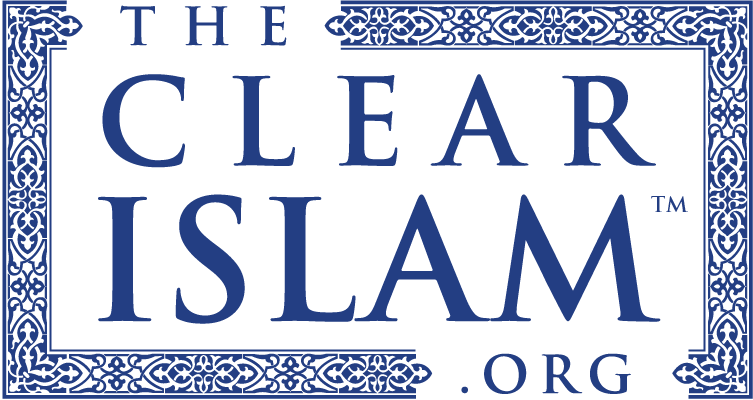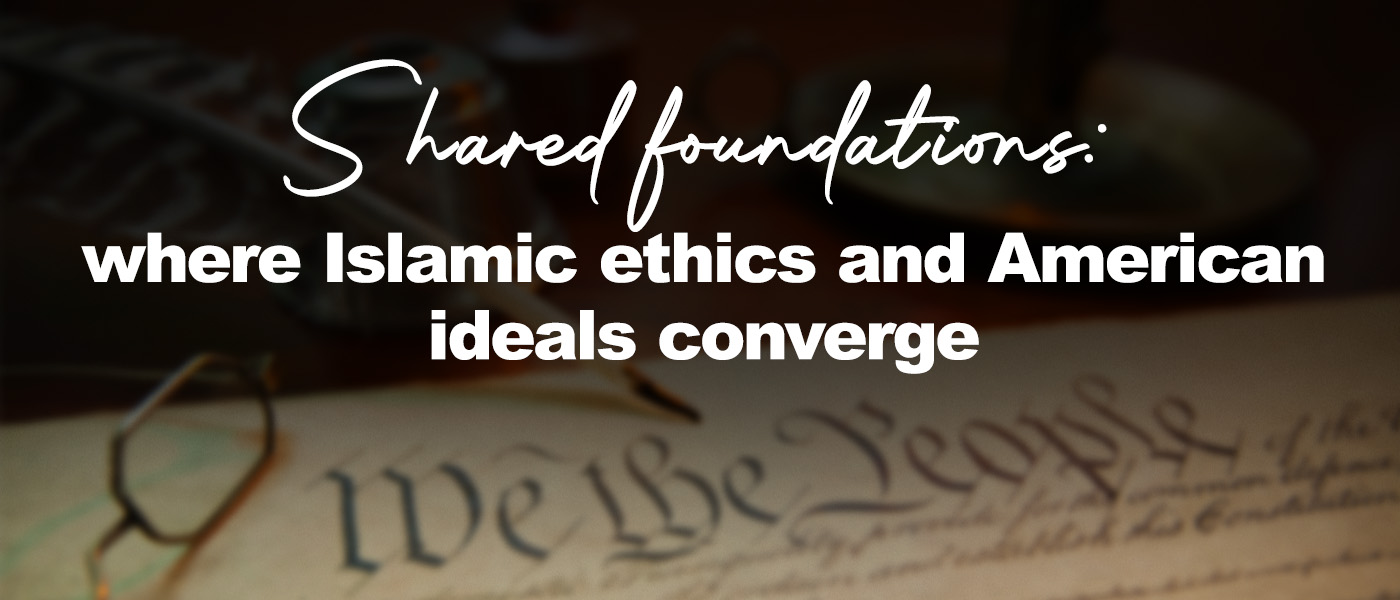There is a quiet power in uncovering common moral ground between seemingly disparate traditions. The spiritual heritage of Islam, rooted in centuries of revelation and jurisprudence, and the constitutional ideals of the American republic, forged through revolutionary thought, both strive toward universal principles: justice, dignity, liberty, compassion, and social harmony.
In a time of rising polarization – when cultural, political, and religious fault lines often dominate public discourse – these shared values offer not only philosophical resonance, but a blueprint for collective resilience.
Justice as a Moral Imperative
In Islamic tradition, justice is inseparable from faith. The Quran instructs:
“O believers! Stand firm for justice as witnesses for Allah even if it is against yourselves, your parents, or close relatives. Be they rich or poor, Allah is best to ensure their interests. So do not let your desires cause you to deviate ˹from justice˺.” — The Clear Quran® 4:135
The Prophet Muhammad (SAW) extended this concept to social dynamics, teaching that justice must be pursued regardless of personal ties or tribal allegiance (Sahih Bukhari).
This mirrors the American political creed, where justice is enshrined in both principle and policy. The Declaration of Independence declares:
“We hold these truths to be self-evident, that all men are created equal…”
The Constitution advances this ideal through the 14th Amendment, which guarantees equal protection under the law. In both frameworks, justice is not a privilege of the few – it is the duty of all.
Freedom of Conscience and Belief
Religious liberty is one of the most profound intersections between Islamic ethics and American civil rights. The Quranic proclamation:
“Let there be no compulsion in religion…” — The Clear Quran® 2:256
is not only a theological statement – it’s a recognition of personal agency. The faith tradition values persuasion over coercion and reason over force:
“Invite ˹all˺ to the Way of your Lord with wisdom and kind advice, and only debate with them in the best manner.” — The Clear Quran® 16:125
Similarly, the U.S. Constitution’s First Amendment protects the freedom of religion and speech as inalienable rights. These protections remind us that both traditions hold space for dissent, diversity, and discourse.
Compassion and Civic Responsibility
The moral responsibility to care for others is deeply embedded in both Islamic and American traditions. Islam institutionalizes compassion through charity (Zakat and Sadaqah), as The Quran states:
“The example of those who spend their wealth in the cause of Allah is that of a grain that sprouts into seven ears, each bearing one hundred grains.” — The Clear Quran® 2:261
The Prophet (SAW) underscored social accountability:
“He is not a believer whose stomach is full while his neighbor remains hungry.” — Al-Adab Al-Mufrad 112
Though the U.S. Constitution does not mandate personal charity, the ethos of “promoting the general Welfare” found in its preamble points toward a national commitment to shared well-being and collective dignity.
Education as a Pillar of Civilization
The pursuit of knowledge is elevated to a sacred status in Islamic thought:
“My Lord, increase me in knowledge.” — The Clear Quran® 20:114
The Prophet Muhammad (SAW) described seeking knowledge as an obligation for every believer (Sunan Ibn Majah). In early American political philosophy, education was likewise seen as essential to liberty. Thomas Jefferson famously asserted:
“An educated citizenry is a vital requisite for our survival as a free people.”
Both traditions recognize that ignorance endangers freedom, and that knowledge sustains justice, governance, and spiritual fulfillment.
Ethical Governance and Accountability
Islam teaches that leadership is a sacred trust (Amanah). The Quran states:
“Indeed, Allah commands you to return trusts to their rightful owners; and when you judge between people, judge with fairness.” — The Clear Quran® 4:58
Interestingly, this verse was revealed after the peaceful surrender of Makkah to the Muslims, after which Ali ibn Abi Ṭalib (RA) took the Ka’bah’s key from its non-Muslim keeper, Othman ibn Ṭalḥa. A verse revealed to the Prophet (SAW) inside the Ka’bah ordered its return. Hazrat Ali (RA) returned the key with an apology, and Othman, moved by this act of justice, embraced Islam and was promised his family would keep the key forever.
This verse aligns with the constitutional vision of checks and balances, designed to safeguard against abuses of power. Islam and the American system share a fundamental imperative to uphold rule of law, promote transparency, and insist on moral responsibility among those who govern.
Reviving Moral Kinship in Polarized Times
It is easy to lose sight of these shared values in a world saturated with outrage and division. Yet the moral DNA that links Islamic and American foundational principles is not abstract, but rather deeply human.
“And hold firmly together to the rope of Allah and do not be divided.” — The Clear Quran® 3:103
“…to form a more perfect Union…” — U.S. Constitution
These words – one sacred, one civic – reveal a profound yearning for unity. They remind us that beyond theology and politics lies a shared moral landscape, cultivated by compassion, justice, and integrity.
Toward Collective Renewal
By acknowledging and celebrating the ethical parallels between Islam and the founding principles of the United States, we foster understanding, build trust, and affirm the dignity of pluralism. In times of social strain, such convergence is not merely inspirational – it is imperative.
These aren’t just ideas to admire; they’re values to practice. And in practicing them, we honor not only our past, but also the possibility of a more unified and humane future.
We sincerely pray that Allah (SWT), Source of All Wisdom and Justice, grants us clarity of heart and mind to return to and uphold the founding principles of Islam and of America – rule of law, justice, compassion, freedom, equity & equality, and moral responsibility. May He (SWT) unite our communities in peace, strengthen our bonds with sincerity, and guide those who lead with integrity. May our shared values be a light in times of division and a bridge toward harmony. Ameen!


